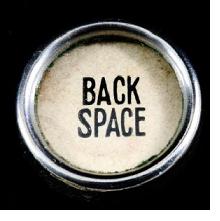In recent years it seemed like everyone was going freelance, working from home, doing the thirty-second commute. But in more recent times it looks like the rubber band, so to speak, of freelancing is snapping back the other way. Consider the latest news about Yahoo and its new CEO’s policy bringing in work-from-home staff back into the office. Is this a trend you can watch spreading to other companies who suddenly decide that working in your jammies is bad for productivity?
Not yet. But keep watching those headlines and you might see plenty of “me too” stories about others, inspired by Yahoo, who want to yank their employees back into the land of the cubicles.
This is good news, and bad news for freelancers. The good news is that the reality check has finally arrived. It’s not, as many websites want us all to believe, EASY to be a freelancer or work-from-home guru. It takes discipline, dedication, and the ability to resist all of your regular time-waster distractions you indulge in when you’re not sitting in front of the computer. It also requires more transparency and accountability to make things work properly.
Some just don’t have what it takes, some are total overacheivers. But it’s not EASY, whatever the outcome.
The good news is that these kinds of reality checks are GREAT for our freelance businesses–those who continue to thrive as freelancers have an additional–and totally subjective–air of achievement. We still succeed where Yahoo “failed”. We are trustworthy enough to remain in our jammies, keep turning things in on time and on target. We rule.
But with that it’s realistic to expect a higher standard. If you can do what Yahoo wouldn’t dream of letting you do (now), working from home, it’s likely that expectations will increase. After all, there MUST be a reason why Yahoo’s CEO is so bent on yanking employees back under the glare of the florescent bulbs, right? RIGHT? Don’t be surprised if the bar gets raised in the wake of all this…even if it’s just a little bit.
But the pros need not worry–we’re used to this sort of thing. Occupational hazards include a wee bit of jealousy that we’re still wearing what we went to bed in when we deliver that product. It’s only right to expect to be scrutinized a bit closer when things like the Yahoo story pop up. The mantra? It all goes back to Gloria Gaynor; “I Will Survive”.




 Writers make lots of mistakes. That’s why the first version of what you write is called a “first draft”. The very name implies you’re going to go back and do some things over–preferably BETTER than the first time.
Writers make lots of mistakes. That’s why the first version of what you write is called a “first draft”. The very name implies you’re going to go back and do some things over–preferably BETTER than the first time. When the Gotham police department wants to get Batman’s attention, they have it easy. Shine the Bat-Signal on the clouds and hope he’s not sleeping it off somewhere. When bloggers want to attract attention, they have to do a bit more work.
When the Gotham police department wants to get Batman’s attention, they have it easy. Shine the Bat-Signal on the clouds and hope he’s not sleeping it off somewhere. When bloggers want to attract attention, they have to do a bit more work.